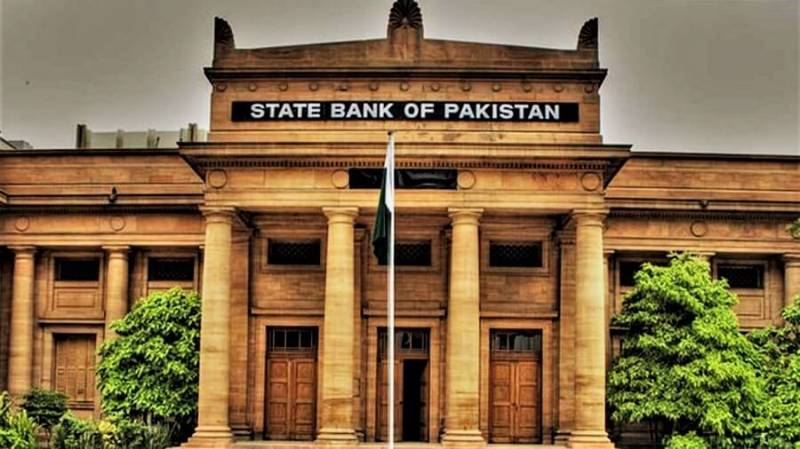
The Monetary Policy Committee of the State Bank of Pakistan (SBP) on Monday decided to keep the interest rate in the country unchanged at 22%, noting that the rate has contributed to improving macroeconomic indicators, especially in the medium term.
The Monetary Policy Committee of the central bank met on Monday to deliberate the interest rate in the country and the macroeconomic factors affecting the rate.
A statement released after the meeting noted that the real policy rate is significantly positive on a 12-month forward-looking basis and is appropriate to bring inflation down to the medium-term target of around five to seven percent by the end of the fiscal year 2025. However, several factors needed to perform as expected, including the pace of fiscal consolidation and the timely transfer of planned external inflows - loans etc.
1/3 Monetary Policy Committee (MPC) of #SBP has decided to maintain policy rate at 22% in its meeting held today. See https://t.co/P8SJRWWQhc#SBPMonetaryPolicy pic.twitter.com/t1ixjs3W5Z
— SBP (@StateBank_Pak) October 30, 2023
In the short term, it noted that after a surge in September, inflation was expected to lower in October and then maintain a downward trend for the second half of the fiscal year as the country's macroeconomic situation improved.
However, it noted that with a war raging in one part of the Middle East threatening to spill over, there remains uncertainty in the energy market, especially about prices of oil and even gas. It noted that the government has already increased the gas tariffs, with the increase to go into effect from November 2023, which could pose some risks to the economic outlook for the fiscal year 2023-24, especially on inflation and the current account.
With inflation spiking to 31.4% in September, the committee expected it to fall significantly in October due to a massive reduction in fuel prices and easing prices of some major foods on the back of the September harvest season.
However, it noted that there was good news regarding the interbank and open market exchange rates aligning.
Elsewhere in the economic landscape, the MPC noted that there had been encouraging initial estimates for Kharif crops, which are considerably more than last year's and will likely have a positive impact on the economy.
There has been modest growth, the MPC noted, as indicated by higher fertiliser purchases, recovery in areas such as cement, energy, auto sales and even some gradual improvement in the output of Large-Scale Manufacturing with a focus on domestic consumption.
Moreover, the current account deficit narrowed considerably in August and September, creating some fiscal space for the government's foreign currency accounts to breathe. Other fiscal balances also showed signs of improvement, with the fiscal deficit improving to 0.9% of GDP, up from 1% of GDP. The primary deficit also improved to 0.4%, as opposed to 0.2% last year, reflecting improved revenue collection and lower spending after several subsidy and grant schemes were eliminated in line with IMF conditions.
This was helped by a 24.9% increase in revenue collection by the FBR and a doubling of non-tax revenue thanks to an increase in the petroleum development levy.
It noted that Pakistan's external payments deficit has narrowed over
58% year on year to $947 million in Jul-Sep FY24, while almost levelling out in September 2023 thanks to growing exports and higher remittances.
The MPC noted that reforms relating to
exchange companies, which were introduced in early September, coupled with a crackdown against illicit market activities, have helped improve the domestic foreign exchange market and dollar liquidity.
With the central bank's forex reserves standing at around $7.5 billion and few other inflows, the committee noted that the timely completion of the upcoming International Monetary Fund (IMF) Stand-By Arrangement (SBA) review would help unlock other multilateral and bilateral financing for the country which would ease monetary pressures.
The high-interest rate continued to slow down the private sector. Hence, money growth also slowed.

